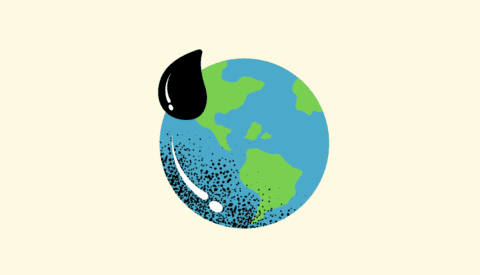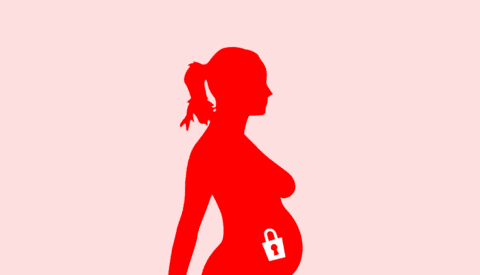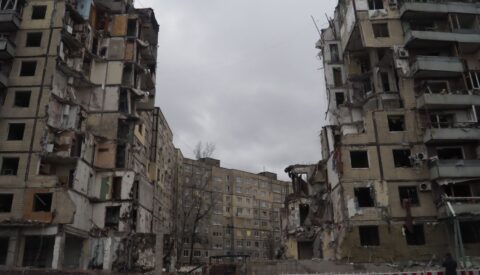Sensory Deprivation: The Power Of Darkness To Heal The Mind
For centuries, sensory isolation has been used as a tool to achieve deep meditative states. With noise and light pollution growing around us, seeking profound silence and darkness may be the ultimate balm for modern times.
Article
2025

Article
On July 16, 1962, geologist Michael Siffre launched a particular experiment. He wanted to know what happens when the human body is plunged into total darkness. To find out, he went down into a 427 feet-deep cave in the southern Alps without a watch. He brought food, material to take notes and a flashlight connected to a battery. His only connection to the outside world was a field telephone to tell his assistants how the experiment was progressing.
What happened was what he had foreseen: The complete lack of light made him lose track of time. In silence and darkness, Siffre had no reference points for his brain to cling to in order to establish how many hours had passed. In the end, he spent 61 days underground, but when his team pulled him out of the cave, he estimated he had only been there for 36 days.
Silence is usually defined as the absence of sound, and darkness as the absence of light. But as bat expert and ecologist Johan Eklöf says, the latter «has value in and of itself». Living beings require both light and darkness for all of their systems to function properly.
A lack or excess of either has tangible effects on biological processes: It affects the circadian rhythm, disrupts sleep and hormones, affects the immune system, impacts the reproductive cycles of some species, and can increase the risk of certain physical and mental illnesses.
Positive darkness
Although it is fairly clear to us that when the days get shorter and colder in winter, getting some sunlight is good for physical health and for the mood, little is known about the positive impact of darkness.
More and more techniques have recently been appearing that use it as a tool to alleviate stress, often in combination with noise cancellation because, together, darkness and silence create a sensory vacuum. They put a stop to the visual stimuli induced by light and the auditory stimuli of outside noise, and thus, form a favorable space for introspection.
Darkness as a kind of visual silence
«For someone who feels overwhelmed by stress, the absence of visual stimuli can be a relief. Some psychologists agree on the fact that darkness allows for deeper conversations», writes Eklöf. Breaking away from the constant flow of external stimuli helps to focus on one’s own body and allows us to witness bodily and mental sensations that, in the midst of noise, are difficult for us to observe. Darkness as a kind of visual silence.
Neuroscientific studies have found that silence stimulates neurogenesis, thus contributing to memory, learning, creativity and problem solving. Likewise, darkness favors more restful sleep. All kinds of relaxation «experiences» have recently been popping up for a reason, like the so-called «mind spas», which combine techniques that promise to reduce stress in the body and mind, through sensory isolation spaces or flotation therapies, for example.
The flip side
But every record has a B side. Michael Siffre was not the only one who decided to isolate himself in a cave for weeks. Some time later, French explorer Véronique Borel-Le Guen decided to reproduce his experiment.
Although she broke the female record by staying 111 days underground, «according to statements by her psychiatrist, the experience of isolation and the loss of the notion of time pushed the adventurer into a deep depression when she returned to the light again», explains physicist and philosopher Stefan Klein. A year later, Borel-Le Guen committed suicide.
As the cases of prisoners who spend weeks or months in dark confinement cells show, prolonged isolation can have adverse psychological effects. Being completely isolated not only impacts physical and mental well-being, but it can trigger anxiety attacks – and even hallucinations.
For centuries, the darkness-silence combo has been the basis for spiritual practice
In her research, psychologist Gro Sandal has found that, in extreme conditions, in the absence of interaction and external stimuli, the brain creates its own reality to feel less alone. Sensory isolation facilitates states of calm, but – as we know – too much of it can be harmful.
Carpe noctem
For centuries, the darkness-silence combo has been the basis for spiritual practice. In different cultures, sensory deprivation has been used as the key to reaching deep meditative states. An oasis of disconnection from the outside noise, a terrain for internal exploration.
Perhaps that is why today in the world there are different places where people pay for darkness retreat: Remote places with open landscapes, where the stars can be clearly seen in the night sky, are in vogue in Scandinavia, and so are the national parks of the United States and the Andes mountains.
To counter the current noise and light pollution, a marriage of silence and darkness. Silentium est aureum. Carpe noctem. Silence is gold. Seize the night.
This content is part of a collaboration agreement of ‘WorldCrunch’, with the magazine ‘Ethic’. Read the original at this link.






